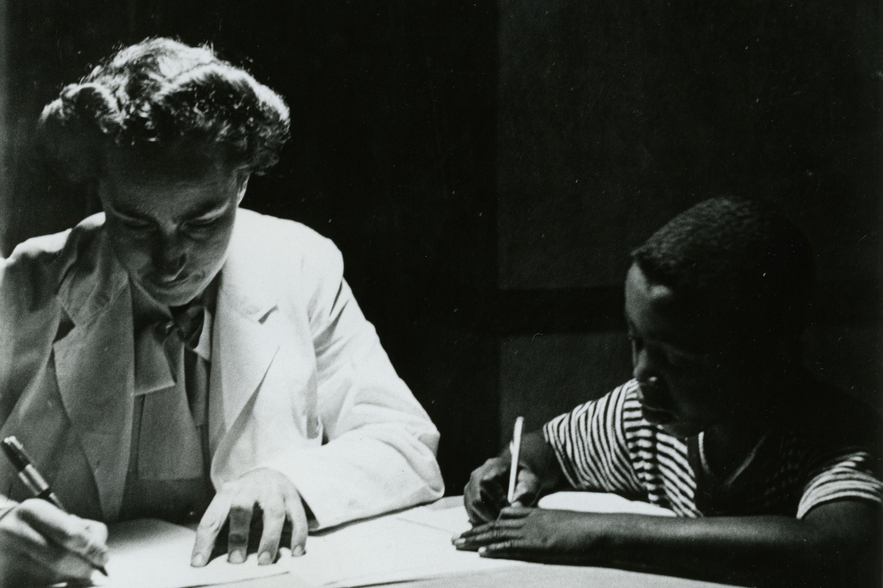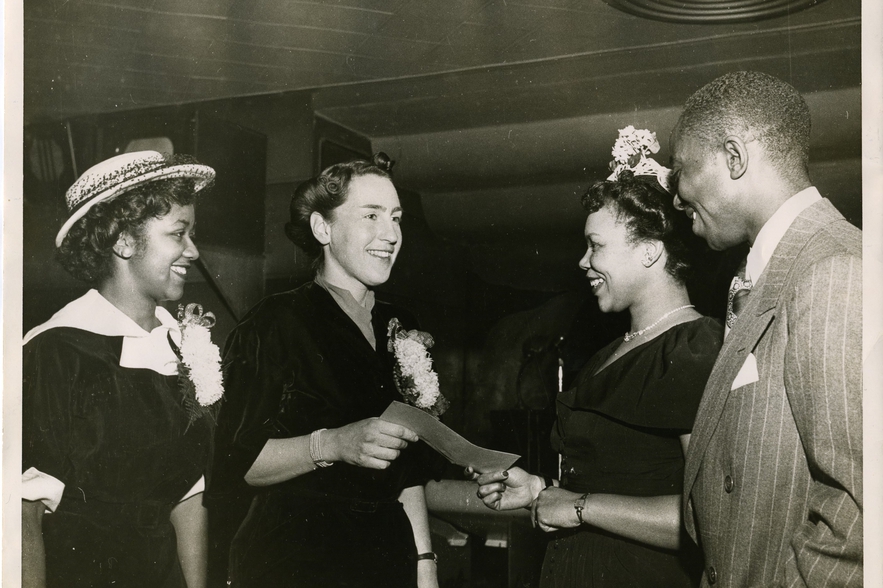Color on My Mind
The History of the First Black Mental Health Clinic in America


- Tag/Uhrzeit
- –
- Format
- Online
The Lafargue Clinic was founded in 1946 by a group of black intellectuals and German-Jewish doctors. These activists joined together to answer a pressing need in New York -the need for psychiatric care for Black people. Blacks were historically denied access to clinics and hospitals that provided for the mental needs of the city. Further, black intellectuals argued that their communities suffered two-fold: having the psychological needs all people had, but also further needs fueled by the racism they experienced around them.
Led by American cultural figures like writers Richard Wright, Ralph Ellison, and photographer Gordon Parks, as well as the German-Jewish doctors Frederic Wertham and Hilde Mosse (who had fled Berlin after Hitler took power in 1933), the Lafargue Clinic was in the basement of a church. Using partitions, small rooms were formed for visitors seeking psychiatric care. The care was free, even though it had to be privately supported, as no New York City government agencies agreed to fund it. The Lafargue Clinic became the first clinic for psychiatric care for Black people in America.
Register to join this presentation by Associate Professor of History Dennis Doyle of the University of Health Sciences and Pharmacy in St. Louis, who has written extensively about the Lafargue Clinic and the history of mental health care in Harlem. After his presentation, he will be joined in conversation with Professor Martin Summers of Boston University, a fellow historian on the history of Black mental health care in the United States, and the author of several books on the topic.
About the Speakers
Dennis Doyle is an Associate Professor of History at the University of Health Sciences and Pharmacy in St. Louis, MO. For the bulk of his career, Doyle has studied the history of psychiatry and its engagement with race in civil rights era Harlem. Since 2009, he's published six articles on mental health care in Harlem and a 2016 book on liberal policy efforts to expand health care for African Americans in New York City. Since 2013, he and Bob Zebroski also researched the history of the St. Louis College of Pharmacy, preparing a book-length manuscript for future publication. In his forthcoming work, Doyle examines Dr. Fredric Wertham of the Lafargue Clinic, community psychiatry pioneer Dr. Viola Bernard's earliest consulting work with the Community Service Society of New York, and acclaimed science fiction writer Samuel R. Delany's childhood encounter with psychiatry in Harlem of the 1950s. He has also started a new book-length project investigating the previous century's habit of reinterpreting William Shakespeare's works through the lens of Freud and psychodynamic theory. You can learn more about Dennis Doyle here.
Martin Summers, History Professor at Boston College, is a cultural historian of the nineteenth- and twentieth-century US, with a particular focus on race, gender, sexuality, and medicine. He regularly teaches courses on post-1865 US and African American history; gender and sexuality in African-American history; and medicine and public health in the African diaspora. His recently published book, Madness in the City of Magnificent Intentions: A History of Race and Mental Illness in the Nation's Capital, was awarded the 2021 Cheiron Book Prize for outstanding monograph in social/behavioral/human sciences. Summers’ current book project, Inner City Blues: African American Mental Health and Social Policy in Twentieth Century Urban America, is an historical examination of how social scientists, psychiatrists and psychiatric social workers, government officials, and community organizers understood the relationship between urbanization and mental illness, and consequently sought to address the mental health care needs of African Americans in so-called ghettoes. You can read more about Martin Summers here.

